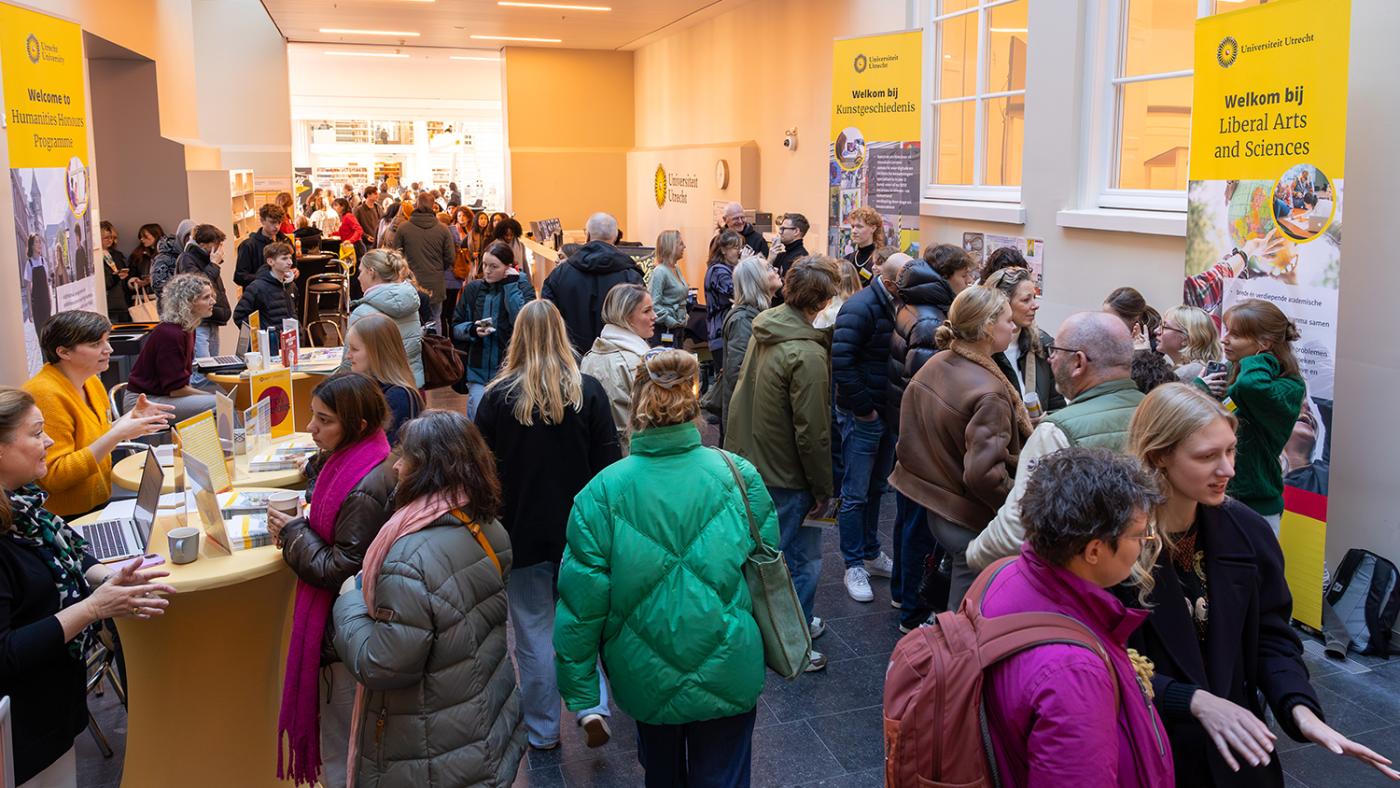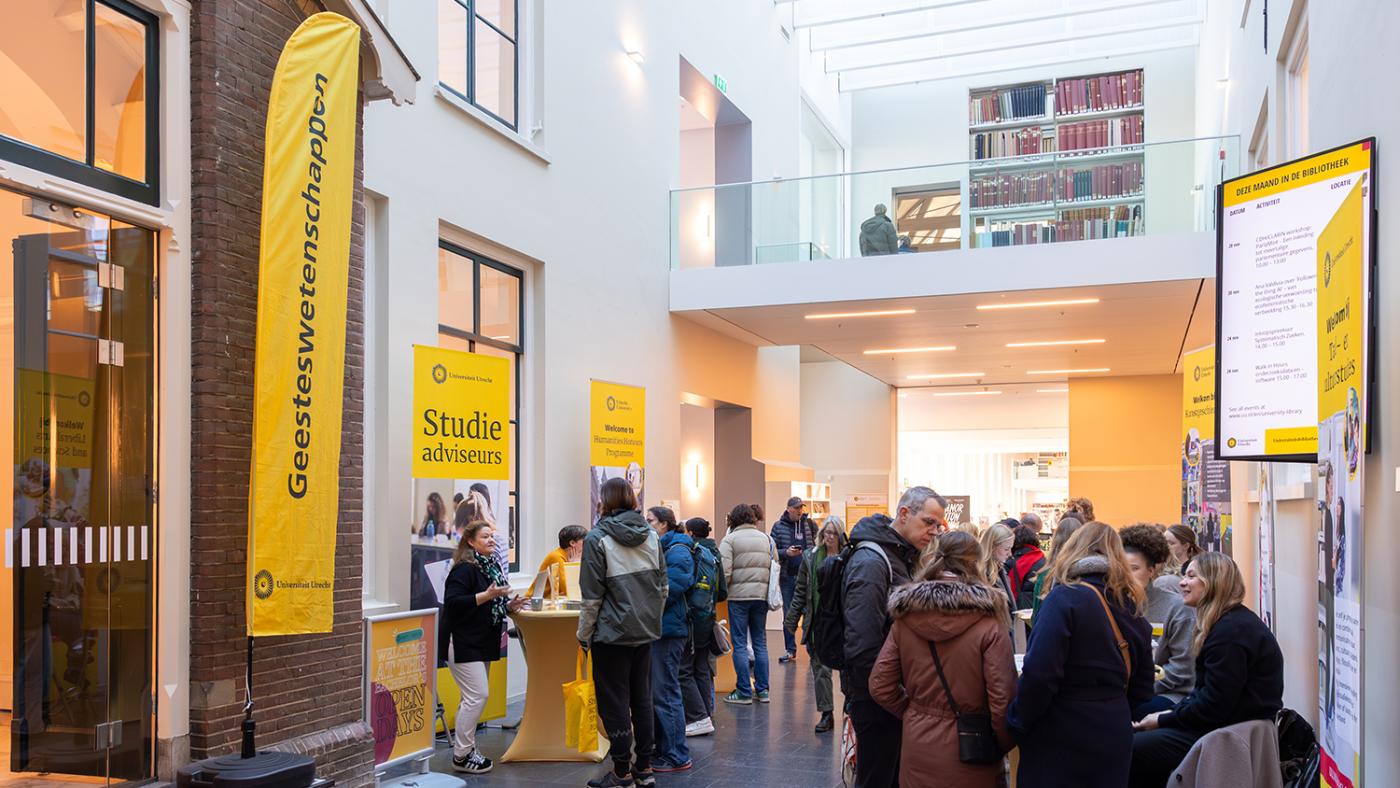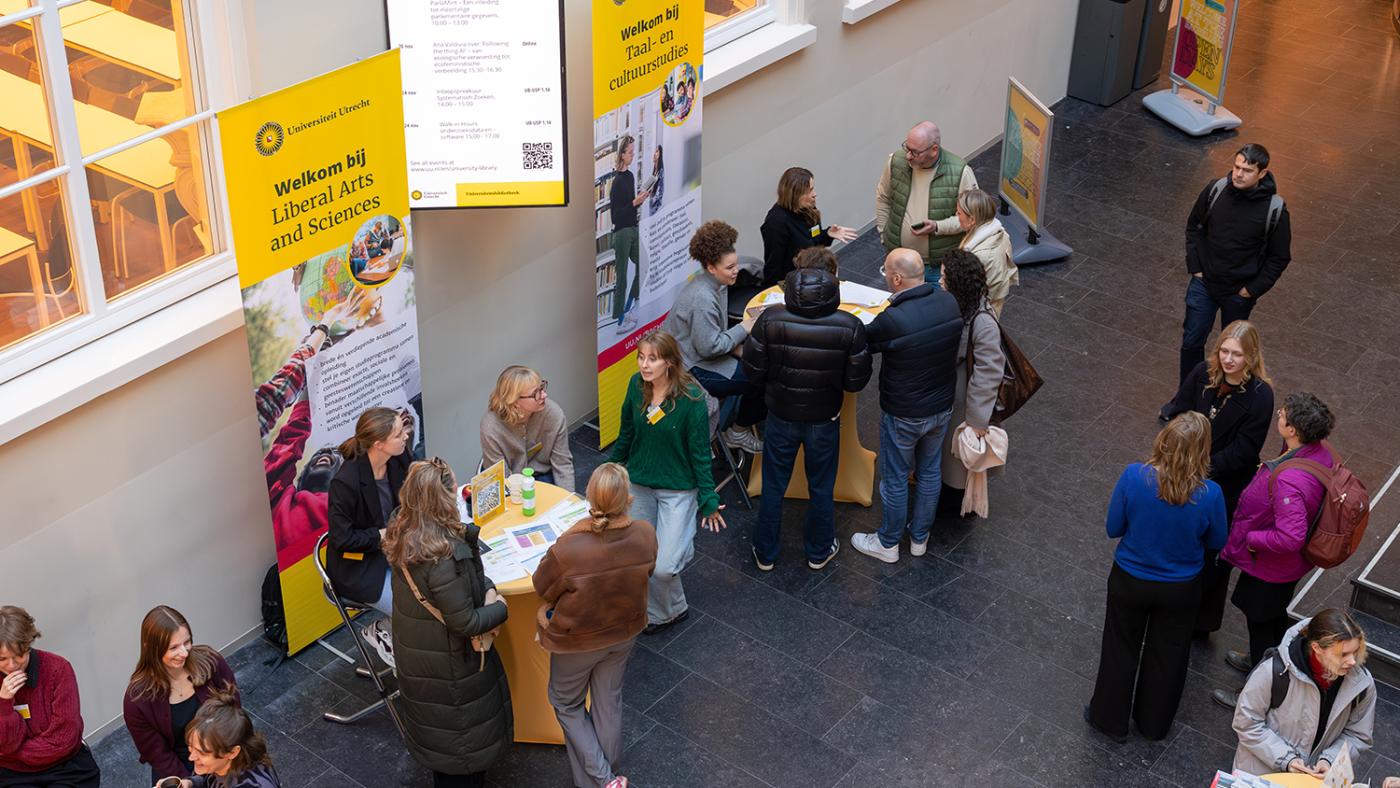Faculty must save money and innovate
Humanities to reformulate bachelor's programmes

Coming up with a new structure for the bachelor's programmes to attract more students and ensure that the faculty can manage with 25 percent fewer teaching hours in two years' time.
That is the task assigned to a project group comprised of five education directors from various departments of the Faculty of Humanities at the beginning of the year. It's not an easy task, especially given the mood hasn't been the best at the faculty since the announcement of budget cuts totalling some 23 million euros over three years, which will involve a hiring freeze. This is certainly true for language programmes with a low number of students, which are losing their independence.
However, according to the faculty board, the operation is of great importance as restructuring the bachelor's offering will prevent forced redundancies and keep all disciplines on board. It is also necessary to make the Faculty of Humanities more appealing to a dwindling young population.
Balancing act
Sigrid Merx, Director of Education at the Department of Media & Culture Studies, is a member of the project group. She acknowledges that this is a difficult “balancing act”. The project group also has to take into account the major differences between the more than twenty programmes offered by the faculty. “We want UU's Faculty of Humanities to have a distinct identity, but at the same time give programmes enough room to develop their own character.”
The project group published a progress report at the end of September (the document is only accessible to those with a Solis ID, Ed.), outlining the contours of a revamped bachelor's phase. These proposals are currently being elaborated by working groups. All programmes will be able to implement their own versions of the plans from the spring of 2026 onwards.
The renewed educational programmes are scheduled to start in the 2027-2028 academic year. However, it is clear that many students and lecturers still have questions and concerns.

Interdisciplinary education
The project group's starting point is that Humanities students will increasingly look beyond the boundaries of their disciplines and even beyond science. This is also in line with UU's renewed educational vision, which emphasises interdisciplinary and transdisciplinary educational concepts such as Community Engaged Learning.
Merx: "This will therefore be an important new feature of studying humanities in Utrecht. For us, it is also about how you use your own discipline, knowledge and skills to engage with students and issues from other disciplines and with society."
In practice, this means that all Humanities students will take a “connection package” of four courses. After a compulsory introductory course, they will choose three courses from a thematic range, in which they learn to collaborate with students from other Humanities programmes or, for example, representatives of social organisations.
This approach is also attractive from a financial perspective. Courses in this connecting package are guaranteed sufficient enrolment because students from all programmes must register for them. After all, some problems in the faculty are attributed to the large number of small programmes with courses that enrol few students. The starting point is that not only every programme but also every course must attract at least 25 students.
Other new elements in the revamped programmes include a continuous faculty learning pathway for personal and professional development, which will replace the current tutoring system, and a different approach to graduation research. Students will no longer be required to submit a written thesis at the end of their bachelor's programme.
Less small-scale education
The project team ultimately concluded that existing education could not remain unaffected. Because there will soon be fewer lecturers due to budget cuts and the hiring freeze, education will have to become less small-scale.
According to the director of education, this can be achieved without compromising the quality of education or causing the faculty to conflict with the university's principles for bachelor's education. Compared to other faculties, the Faculty of Humanities currently offers a relatively large number of seminars.
She also believes that it is a persistent misconception that this will lead to more lectures. "By thinking in terms of the standard categories of lectures and seminars, we are selling ourselves short. There are many other ways to fill teaching hours that are valuable to both students and lecturers. Think of excursions, group assignments that students carry out independently, knowledge clips or E-modules."
"It is true that this affects all lecturers," she says. "They will all have to work hard to change their courses. At a time when lecturers are already so busy, you would rather not ask them to do that. But if we keep teaching the same way we do now, we will continue to lose money. We want stability and peace in our education."

Connection package
The project team has identified several risks that could cause the renewal process to fail. For example, the lack of lecture halls in the Utrecht city centre is a problem. But there is also a risk that lecturers will not support the change.
After all, there is also criticism of the project team's plan within the faculty. Many students and lecturers recognise the added value of students being able to look beyond the boundaries of their own discipline, but they fear that their own discipline will suffer too much as a result.
After all, the introduction of the connecting packages will cost at least 15 credits in programme-specific subjects and 15 credits that students could previously fill with elective subjects of their choice. The fear is that this will mean that students who want to specialise in a particular discipline will end up losing out.
No more subject nerds?
"There is a high risk of dilution," says Brandt van der Gaast, Bachelor's coordinator of the Philosophy programme. "We have many students who mainly want to take philosophy courses and may later want to go into research, the 'nerds', so to speak. We don't want to lose them."
Van der Gaast also wonders what guarantee there is that the new approach will indeed attract more students and keep them on board. According to him, the plan does not provide any substantiation for this.
Both of his concerns are shared by a history lecturer who prefers to remain anonymous because he does not want to criticise colleagues who are "trying in good faith to make the best of a bad situation. "I fear that programmes that currently attract many students will be weakened and become less attractive."
He also points to potentially negative consequences for students' sense of community if there are fewer seminars. "What if that leads to students feeling less at home and leaving?"
According to him, his closest colleagues do not support a renewal operation that has to take place under such severe budgetary pressure. "You can't just switch to interdisciplinary education. Not if you want to do it properly, at least. The content here seems to follow the logic of finance."
He also sees that many lecturers doubt the urgency of generic measures and still distrust the motives of faculty administrators, which has consequences for the workplace atmosphere. "There is a feeling that everything is being decided top-down."
Matthijs Brinkhuis, chair of the student faction in the faculty council, believes that many students will find the new, broader approach appealing. However, he too is concerned that students who “really want to learn a subject” may feel less welcome. “In our opinion, mature disciplines must continue to exist, not least to ensure that the interdisciplinary approach does not become an empty shell.”
Brinkhuis also warns that lecturers will have a lot more work to do. "If lecturers are unable to provide good education because they have to retrain or change their course, this could be at the expense of the quality of education, whereas the plan's intention is to improve education. Students are already seeing lecturers taking sick leave."
Understandable concern
According to Sigrid Merx, it is not surprising that many students and lecturers still have reservations. Until now, a relatively small number of humanities scholars have been involved in reforming bachelor's programmes. Over the next few months, we will learn more about the exact implications of the plans given it is up to the lecturers themselves to redesign their programmes.
The concerns about the loss of disciplinary subjects are relatable and understandable, she says. The director of education points out that the original plans even included 60 ECTS credits for joint education. The project team decided that 30 ECTS credits for the connecting package would be sufficient to meet the content and financial requirements.
"It is not our objective to weaken disciplines; on the contrary. We are convinced that interdisciplinarity can actually strengthen the discipline. How this can be achieved was recently explained on DUB by our Interdisciplinary Education programme team."
Sigrid Merx emphasises that the project group has always tried to keep staff members as well-informed as possible about all steps and has listened carefully to input from various meetings. "It is a misconception that the plans are non-transparent or careless. We explain the plans in as many places as possible and constantly seek expert advice. But with changes of this magnitude, it is simply not possible to have everyone at the drawing board or to reach complete consensus with all Humanities scholars."
For Merx and the project group, too, "the short-term workload" is the biggest concern. "The honest truth is that we are once again asking something extra of our colleagues without being able to offer anything in return. That feels terrible. But we don't have the luxury of delaying. The agreement is that the faculty will be financially stable in three years' time, and we don't want to lose the Executive Board's support. All we can say is: we're in this together. We're all going into the red now, so that we can get back into the black later."
Comments
We appreciate relevant and respectful responses. Responding to DUB can be done by logging into the site. You can do so by creating a DUB account or by using your Solis ID. Comments that do not comply with our game rules will be deleted. Please read our response policy before responding.